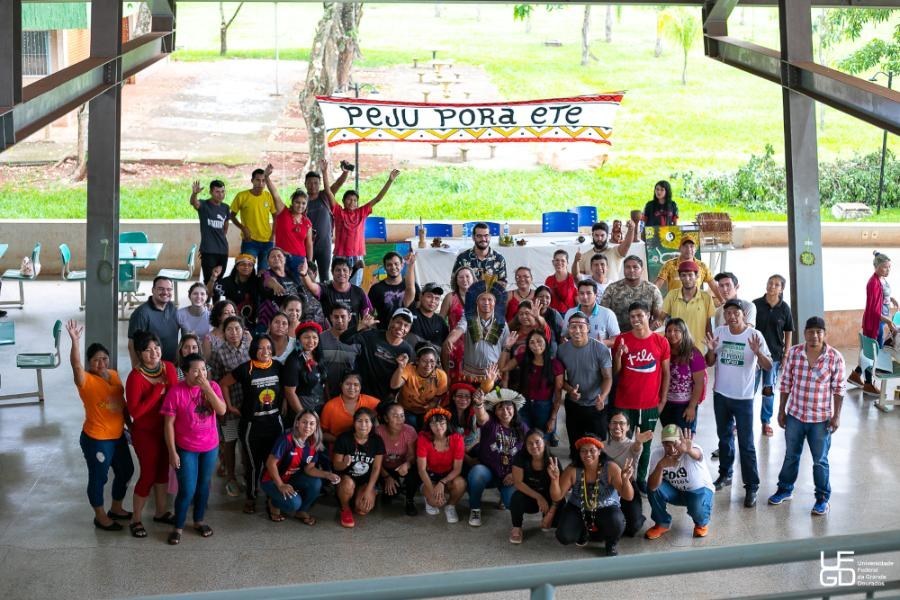COP30 launches partnership to produce radio reports in indigenous languages
Launched in partnership with the Federal University of Grande Dourados (Universidade Federal da Grande Dourados/UFGD), the initiative reinforces the cultural identity of these communities, along with the right to communication—and information—in their native languages. News Bulletins will be issued in Guarani and Terena.

Understanding Social Communication not only as a tool for disseminating information but also as an institution for constructing reality—with the potential to democratize spaces—and themes—the Social Communication Secretariat (SECOM) of Brasil's Presidency welcomes an unprecedented initiative.
In partnership with the Federal University of Grande Dourados (UFGD) in the state of Mato Grosso do Sul (MS), the initiative will be producing news bulletins in indigenous languages Guarani and Terena for COP30. The content, translated and recorded by indigenous collaborators at the university, will be broadcast on the COP30’s official channels in Brasil and via the National Radio Network, operated by Empresa Brasil de Comunicação (EBC).
The country recognizes more than 270 living indigenous languages, some of which are spoken in other parts of the Americas. Including and valuing these languages reinforces not only the cultural identity of these communities but also their right to communication and information in their native languages—a principle guaranteed by the United Nations Declaration on the Rights of Indigenous Peoples (Declaração das Nações Unidas sobre os Direitos dos Povos Indígenas).
“It's very important to give visibility, so the language achieves these spaces, providing information reinforces communication among young people, as the Guarani language is one of the languages that is spoken more than any other. Being able to translate information into indigenous languages is a way of strengthening indigenous identity, which brings with it the knowledge of our ancestry,” says Kelly Duarte Vera, an indigenous Guarani who is part of the translation team.
Jailson Joaquim, an indigenous person from Terena who is also working on the project, agrees with his colleague when he points out that the promotion of indigenous languages at international events contributes to the preservation and revitalization of these languages, which are often on the verge of extinction. "Translating content into Terena, for example, not only enriches the event with new perspectives, but also promotes a commitment to social justice—and human rights—by recognizing their importance, in addition to giving these languages visibility on a global stage," he says.
The initiative builds on the success of the partnership between the UFGD and the Brazilian Presidency of the G20 last year and extends to the content of BRICS Brasil.
English Version: Trad. Bárbara Menezes
Proofreading by Enrique Villamil

